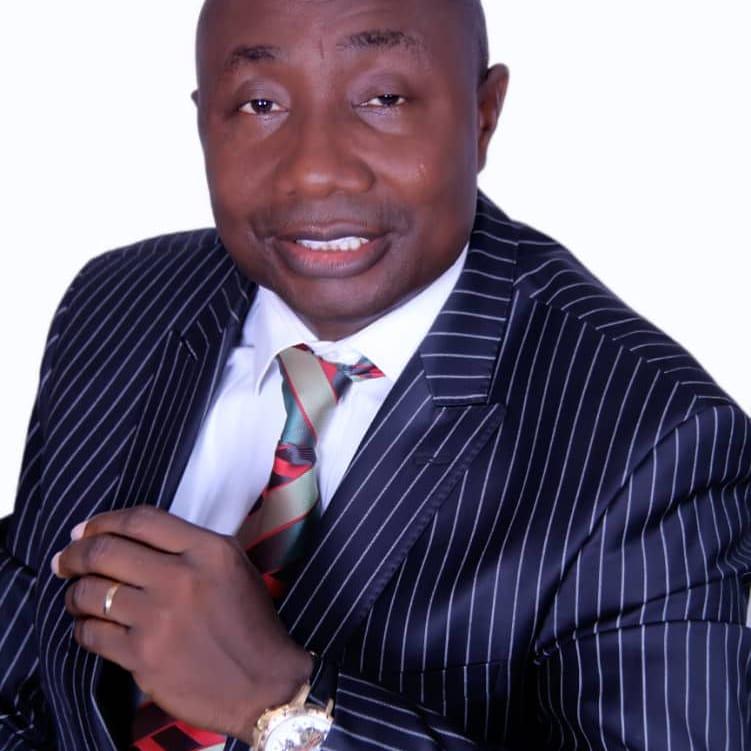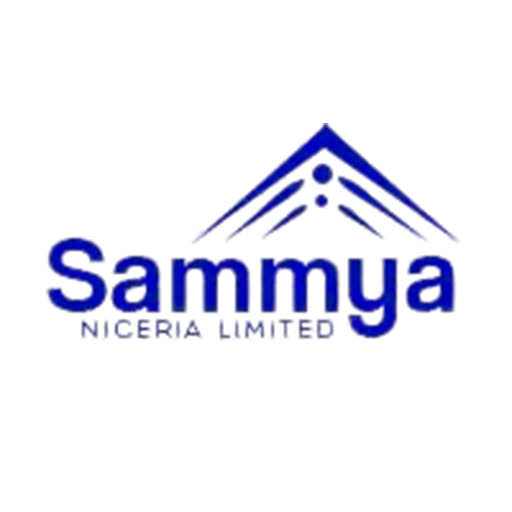OKEY OKORO UDO, a renowned economist and the 2023 Vice Presidential Candidate of the Action Democratic Party (ADP), in this chat with ISAAC NGUMAH shares his expert perspectives on Nigeria’s pressing economic and political issues. He delves into the state of the economy, governance challenges and policy inconsistencies to the ideology of the ADP and its vision for Nigeria’s development. Dr. Udo, who provides an in-depth analysis of current affairs, offering thoughtful solutions and critiques of ongoing government policies, also delves into his commitment to fostering economic stability, social equity, and political transparency in Nigeria, reflecting the core ideology of the ADP: Capital Socialism.
The chat also highlights his practical recommendations for aligning fiscal and monetary policies, improving tax administration, strengthening democracy, and addressing the challenges facing Nigeria today. Excerpt:
What can you say on the President’s achievements in 2024?
2024 was a challenging year marked by economic instability, rising inflation and widespread hunger. Inflation soared to unprecedented levels with food inflation peaking at 30.6 per cent according to the National Bureau of Statistics. Emotional instability became pervasive as unemployment and poverty rates increased. While some initiatives were launched, they failed to address the root causes of Nigeria’s economic woes effectively.
What can you say on the ideology of APC?
If the APC has an ideology, it has not been effectively implemented. The party’s promise of “Change” in 2015 and “Next Level” in 2019 raised expectations for progress and reform, yet these commitments have not translated into tangible benefits for Nigerians. Poor execution, inconsistencies in governance, and the absence of a cohesive strategy have overshadowed any ideological foundation they may claim to have.
In contrast, the Action Democratic Party (ADP) is rooted in the ideology of Capital Socialism, which prioritizes economic growth alongside social equity. We believe in fostering a system where the government actively invests in infrastructure, healthcare, and education while creating an environment conducive to private sector growth. Our ideology emphasizes reducing inequality, empowering local communities, and ensuring that economic policies directly benefit the masses. Unlike the APC, whose actions often contradict their promises, the ADP’s ideology is clear and actionable, focusing on delivering measurable improvements to the lives of Nigerians through a balanced approach to governance and development.
What can you say on local government autonomy?
The Supreme Court has declared local government autonomy, but implementation remains the real challenge. True autonomy would empower local governments to function independently, ensuring grassroots development. Historical data reveals that mismanagement at the state level often undermines local governments, leading to inefficiencies and stunted growth.
What can you say on the Tax Reform Bill?
As a chartered Tax professional, I can boldly say that the tax reform bill has potential, but the government must communicate its objectives clearly to the people. Taxation is not just a fiscal tool but also a social contract between the government and its citizens. For instance, the Value Added Tax (VAT) distribution should favor states generating higher revenue to incentivize economic activity and encourage states to develop sustainable revenue streams.
Moreover, there is an urgent need to improve tax revenue by broadening the tax base, particularly by integrating the informal sector, which accounts for 65% of Nigeria’s GDP but remains largely untaxed. Simplifying tax policies and enhancing awareness will encourage compliance.
Another critical aspect is reducing corruption in tax administration. Leakages and inefficiencies in tax collection undermine trust in the system and deprive the country of vital revenue. Leveraging technology, such as e-tax platforms, can increase transparency, reduce human interference, and improve accountability.
Long-term benefits, such as improved public services and infrastructure, will only materialize if the tax system is both transparent and equitable. The government must demonstrate that tax revenues are being effectively utilized to foster public trust and fulfill its side of the social contract.
What can you say on Constitution amendments?
Constitution amendments should prioritize equity in state creation across regions. For instance, the Southeast has only five states compared to six or more in other regions. This imbalance needs correction to foster fairness and inclusivity.
What can you say on the transition programme in Ghana?
Ghana’s smooth transition program is highly commendable and serves as a model for stable democratic practices in Africa. Since its return to multiparty democracy in 1992, Ghana has demonstrated consistency in peaceful transitions, even during contentious elections, such as in 2016, when an opposition candidate, Nana Akufo-Addo, defeated the incumbent president, John Mahama. This peaceful transfer of power reinforced Ghana’s reputation as a beacon of democracy in West Africa.
Nigeria, on the other hand, has faced challenges during transitions, including disputed elections and delayed handovers, which often weaken public trust. For example, the 2023 general elections in Nigeria faced criticism over alleged irregularities in result collation, highlighting the need for stronger accountability mechanisms.
Nigeria can learn from Ghana by institutionalizing measures to ensure transparency and accountability during transitions. This includes clear timelines for the handover of power, independent audits of election results, and comprehensive debriefing sessions between incoming and outgoing administrations. By doing so, Nigeria can strengthen public trust and ensure that democratic principles are upheld during every transition of power.
What can you say on Electoral Law in Nigeria?
Nigeria’s electoral laws need significant improvement, particularly in ensuring electronic transmission of results and curbing electoral violence. INEC’s credibility depends on adopting technologies and policies that promote transparency and fairness.
Some people have called for the sack of the INEC Chairman. What is your take?
People have a right to express their views, but the real issue lies with political interference and a lack of accountability. Reforms in INEC’s structure and operations are more critical than merely replacing its leadership.
What can you say on the reform policy of the President?
While some reforms have potential, their implementation has been flawed. For example, subsidy removal was poorly managed, leading to hardship for ordinary Nigerians. Reforms must be well-structured and accompanied by palliative measures to mitigate their impact.
What can you say on the present hardship in Nigeria?
The current hardship is alarming. Bad policies, poor leadership and the exodus of skilled professionals (Japa syndrome) have worsened the situation. According to the World Bank data, over 40 per cent of Nigerians live below the poverty line, and rising suicide rates reflect the growing despair. Addressing this crisis requires urgent and inclusive policy interventions.
What can you say on the state of insecurity in Nigeria?
Insecurity remains a national embarrassment despite significant defense spending. Kidnappings, killings, and banditry persist, showing the need for strategic overhauls in security operations and better accountability in resource allocation.
What can you say on state police?
Hahaha. State police is a welcome development with the potential to localize security operations, enabling quicker and more effective responses to crime while addressing unique state-level challenges. However, implementing state police requires robust safeguards to prevent abuse by state governments. These include clear oversight mechanisms through independent bodies, well-defined legislative frameworks to outline powers and responsibilities, and community accountability measures such as civilian review boards. Additionally, anti-politicization policies must prevent Governors from using state police for personal or political purposes, and rigorous, standardized training must be provided to ensure professionalism and respect for human rights. With these safeguards in place, state police can enhance security while upholding justice, fairness and accountability.
What can you say on the ongoing merger of political parties to dislodge the APC government?
Merging political parties is a positive development if done with integrity and a clear vision. The APC itself succeeded through a merger in 2015. A similar coalition, focused on delivering good governance, can achieve a similar result in 2027.
2027 is around the corner. What is the plan of your party to win the Presidential race?
My Party, Action Democratic Party, always stands as the credible alternative. Our strategy combines grassroots engagement, digital mobilization, and credible leadership. We are leveraging social media platforms to reach young voters, who accounted for 40 per cent of the electorate in 2023. Simultaneously, we are intensifying outreach in rural areas, where most voters reside, to build trust and support.
Tell us what is happening in your party presently.
Our focus is on winning the 2027 elections. We are strengthening internal structures, building alliances, and engaging stakeholders to ensure we are well-positioned to deliver on our promises to Nigerians.
What can you say on the plans of the Federal Government to improve the lives of Nigerians?
As an Economist I can tell expressly that the Federal government policies often appear conflicting and lack the coherence needed to deliver immediate and sustainable impact. One major issue is the inconsistency in aligning fiscal and monetary policies, which has had negative implications for Nigeria’s development. For example, while fiscal policies such as subsidy removal aim to reduce government spending, monetary policies like high interest rates designed to curb inflation simultaneously stifle economic growth by discouraging investment and credit access. This disconnect exacerbates inflation, weakens the naira, and leads to rising unemployment and poverty.
To regain public trust, the government must adopt a more integrated approach, ensuring that fiscal and monetary policies work in tandem to promote stability and growth. Nigerians need to see tangible benefits, such as improved healthcare, education, and infrastructure, as evidence of effective governance. Without such alignment, policies will continue to fall short of their potential to uplift the standard of living and drive sustainable development.
What can you say on the appointments made by the President towards the end of last year?
The appointments are commendable if those appointed deliver on their mandates. Though ethno- politically driven than meritocracy. History has shown that the effectiveness of governance lies in execution rather than the appointments themselves.
What can you say on the release of Nnamdi Kanu?
The courts have ruled for the release of Nnamdi Kanu, and the Federal Government must comply with this decision to uphold the rule of law. On October 13, 2022, the Court of Appeal in Abuja, presided over by Justices Jummai Sankey, Oludotun Adefope-Okojie, and Abubakar Lamido, discharged Nnamdi Kanu, citing that his extraordinary rendition from Kenya violated both international and local laws.
Prolonging his detention not only undermines trust in the judiciary but also deepens unrest in the Southeast, where tensions over his case have contributed to voter apathy and increased insecurity. Adherence to the court’s decision and constructive dialogue are essential to restoring trust, fostering peace, and resolving the broader issues underlying this matter. Respecting judicial rulings is a cornerstone of democracy and critical to ensuring long-term stability in Nigeria.
For a better society



